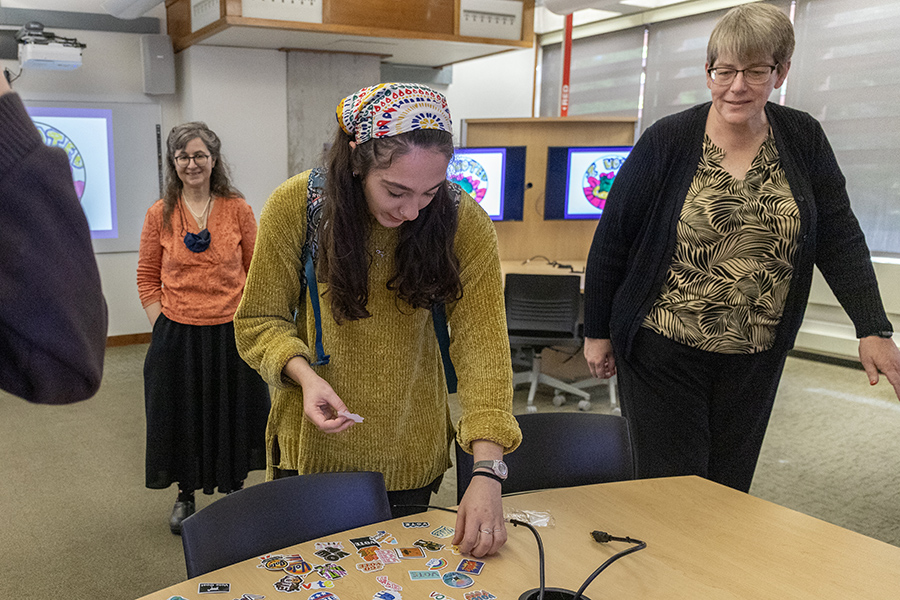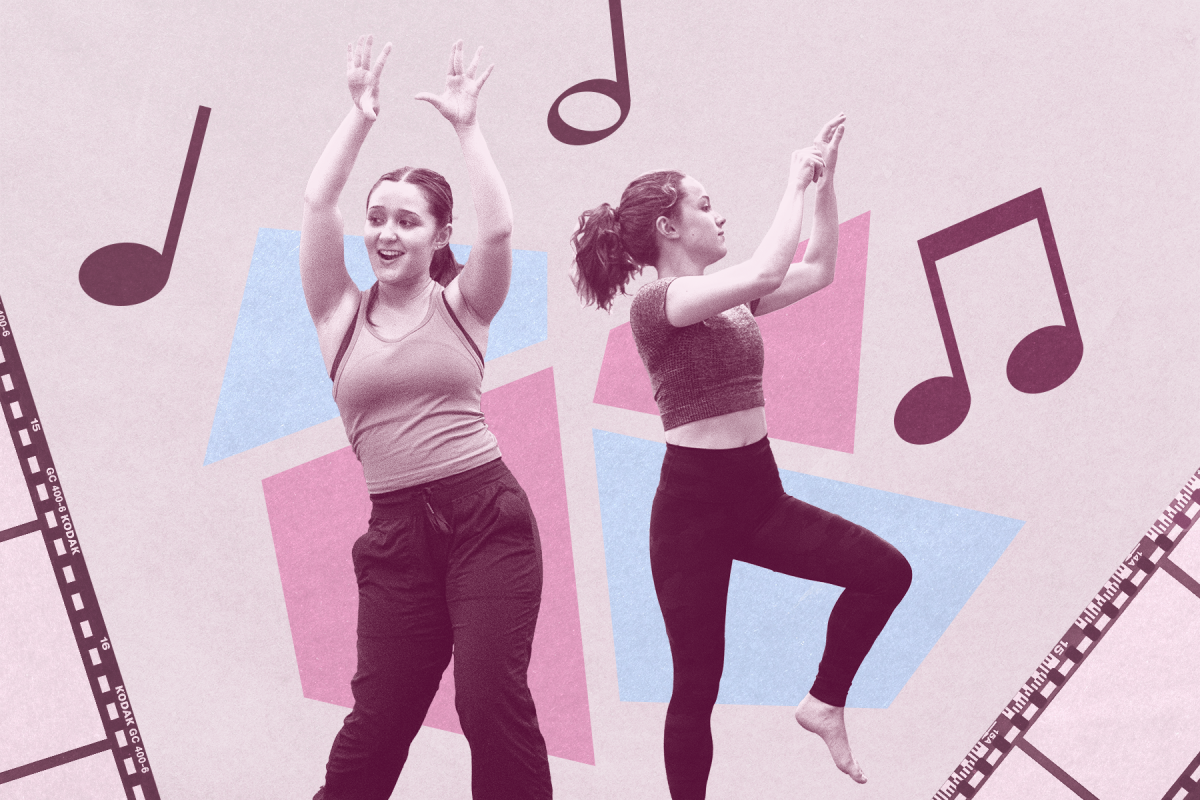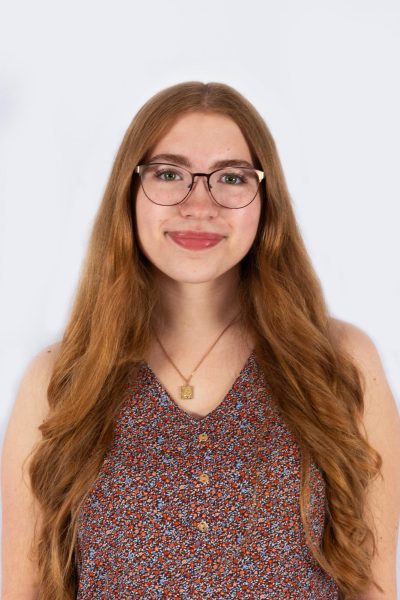As Nov. 5 draws nearer, Ithaca College students, faculty and staff are heightening efforts to give students the tools and resources they need to vote. The Voter Registration Task Force is an ad hoc committee that promotes voter education on campus and is leading these efforts.
The idea to form the task force was born in Fall 2023, when members from the Tompkins League of Women Voters reached out via email to Communications Librarian Cathy Michael, now the chair of the task force. Michael said the league asked her to set up a voter information table on National Voter Registration Day. Doreen Hettich-Atkins, executive director of the Office of Student Affairs and Campus Life, said she helped form the task force in Spring 2024 with Dan Rogers, associate director of student involvement in the Office of Student Engagement.
Hettich-Atkins said she was in charge of promoting voter registration on campus more than a decade ago. Her role was later taken over by the Office of Civic Engagement, which closed in 2016. The office reopened as the Center for Civic Engagement, which played an active part in voter registration during the 2020 election cycle. The center has not taken on that role in the same capacity preceding the 2024 elections, according to Hettich-Atkins. When Michael reached out in Fall 2023, Hettich-Atkins said she decided to take on the role on a large scale again.
“Some of us [in Student Affairs and Campus Life] looked around and went, ‘You know, there’s really not anybody managing this, and [2024] is going to be a big year,’” Hettich-Atkins said.
Hettich-Atkins said the committee receives a small stipend from the Office of the Vice President of Student Affairs and Campus Life to fund its outreach efforts. She said its main activities — tabling, putting up posters on campus and sending out Intercom posts — cost relatively little. A larger expense will be needed on Election Day, when the task force will provide a campus van that volunteers will use to drive students to the college’s designated polling location at Longview Senior Living.
Sophomore Joslyn Forcione recently joined the task force committee, hoping to create a social media presence for the group. She said she does not think students are aware that the committee exists or that they can become members.
“It’s not posted very much anywhere, [how to] join. It doesn’t seem, at least to the general college student population, like something they can be involved in,” Forcione said.
Committee members are engaging students with the topic of voting in the most direct setting: the classroom. Michael Trotti, professor in the Department of History and legal studies coordinator, said he delivers voting-related talks to first-year students in Ithaca Seminars and other classes with a wider variety of students.
Starting Sept. 16, Trotti said he gave a voter preparation talk to 24 required Ithaca Seminar classes. Trotti said he reached over 450 students during the noon-hour discussion periods on Monday, Wednesday and Friday.
“As first-year students, this is, for all of them, going to be the first election they’re voting in,” Trotti said. “So, it’s especially important to reach them.”
In 2016, Trotti began teaching a one-credit history course during federal election years called Voting: U.S. Elections in Historical Context. The course teaches students about historical voting patterns and the evolution of the U.S. party system. In Fall 2024, the course is being taught by his colleague Michael Smith, professor in the Department of History.
Tatiana Patrone, associate professor in the Department of Philosophy and Religion, was one of the ICSM professors who signed up her class to attend one of Trotti’s presentations. She said it was not just the students who had learned something valuable.
“I grew up in Eastern Europe, so this is my second presidential election,” Patrone said. “So frankly … I learned a bunch because … I’ve become a citizen not that long ago.”
After the noon-hour discussion, Patrone said she spent her next class period debriefing about what they had learned and said students who had previously expressed disinterest in voting seemed more likely to vote.
“I think that going into the conversation, most of my students … were not interested in voting at all, and not because they had their minds not made up or anything like that, but literally because it’s a headache, and that’s sad,” Patrone said.
First-year Angelina Caldo, one of Patrone’s students, said she went into Trotti’s presentation confused about the registration process. Afterward, Caldo said she and her classmates are prepared to vote for the first time.
“We were very excited,” Caldo said. “We had conversations with each other to help each other figure out how to register to vote, and we had a small group discussion after it [about our] thoughts, and it was all good vibes.”
First-year students are not the only demographic Trotti has been speaking to. Starting Sept. 23, Trotti said he began giving brief 10-minute informational talks to classrooms about voting. Professors who have invited Trotti to speak teach a range of subjects, including politics, philosophy and physical therapy.
“It’s professors who just think it’s really important that students have this information, and maybe they themselves are not as comfortable with dealing with political material,” Trotti said.
For students studying at the college’s London Center, the U.S. Vote Foundation is assisting students in voting while abroad. The foundation is a nonprofit that consolidates election data and voter services for public use. The London Center held voter information events to teach students how to register and apply for absentee ballots.
Susan Dzieduszycka-Suinat, president and CEO of the U.S. Vote Foundation, said via email that the organization’s goal is to help every citizen participate in the democratic process, including overseas voters.
“If you care about your future, you should vote,” Dzieduszycka-Suinat said. “This is not a personality contest. It is about the future of the country and the world. Don’t stand by and watch it when you have the power to participate.”
Forcione expressed a similar feeling and said students have the power to shape their future with their votes, and should not feel apathetic.
“There are a lot of people in this election that are counting on students not voting, and it’s very important to at least get our voice out there,” Forcione said. “Everything is political, whether we want to believe it or not. So politics are kind of everywhere. And as a generation, we should care.”















